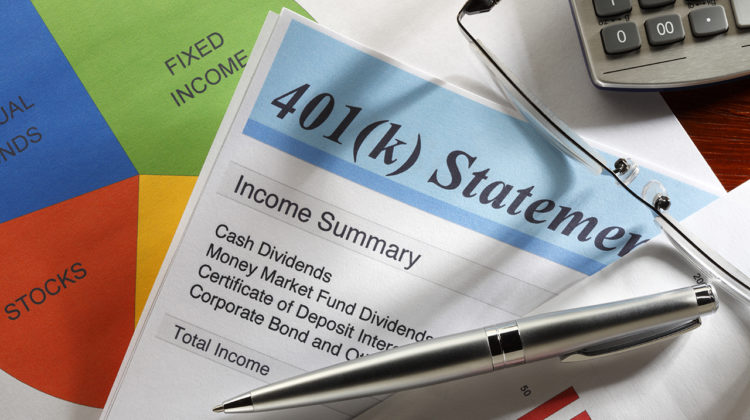
Head of global multi-asset at T. Rowe Price Sebastien Page on whether investors should move beyond the classic 60/40 portfolio approach.
Saving for the future is crucial if you want a financially secure retirement. A 401(k) is an incredibly powerful investing tool, and if you have access to one, it can help you build a robust nest egg by retirement age.
But just how much should you be saving in your 401(k)? While everyone’s savings needs will differ, sometimes it helps to see how you compare to others.
MANY COMPANIES TURN 401(K) RETIREMENT CONTRIBUTIONS BACK ON
How much is the average worker saving?
This year has been rough, to say the least, and not everyone can afford to contribute to their 401(k) right now. But contribution rates have remained strong in 2020, according to data from Fidelity Investments.
During the 12-month period ending in September of this year, the average 401(k) participant saved $7,270, Fidelity found. That comes out to just over $600 per month. In addition, the average worker also earned $4,010 in employer contributions this year.
Between employee and employer contributions, workers contributed a total of 13.5% of their salary, on average, to their 401(k) plans.
3 RETIREMENT MOVES IF YOU’RE OVER 50 WITH $100,000 OR LESS IN SAVINGS
Is this enough to retire comfortably?
Financial experts often recommend saving at least 15% of your income for retirement, so by that standard, the average worker is falling short. But saving consistently can sometimes be more important than how much you’re able to save.
Average employees are saving $11,280 per year, between their own contributions and those from their employer. If you were to save that much every year for 25 years while earning a modest 7% annual return on your investments, you’d accumulate around $713,450 in savings.
In a different scenario, suppose you were contributing $15,000 per year but you started later in life with only 20 years until retirement. Assuming you’re earning the same rate of return, you’d have only around $615,000 saved.
Time is your most valuable resource when you’re saving for retirement. Even if you feel like you don’t have much to save, contribute whatever you can to your retirement fund. Giving your money more time to grow can potentially make up for a lack of savings.
RETIREES DODGED A BULLET ON MEDICARE PREMIUMS NEXT YEAR
How much should you be saving?
Saving around 15% of your salary is a good benchmark, but an even better strategy is to calculate your individual retirement needs. That way, you can be sure you’re saving as much as you should.
To determine your savings goal, plug your information into a retirement calculator. Be honest with yourself as you consider your inputs, because you want your goal to be as accurate as possible.
GET FOX BUSINESS ON THE GO BY CLICKING HERE
Once you know how much you should aim to save, decide whether that target is achievable. In some cases, you may already be on track to reach your goals. Or you may discover that you need to start making some budget cuts to save as much as you need.
If you find that your goal is far out of reach, try to keep saving whatever you can afford. Saving anything is better than saving nothing, so even if you can only save a fraction of what the calculator recommends, that’s still a good start. You might have to adjust your retirement expectations down the road, but it’s crucial to keep contributing to your 401(k) as consistently as possible.
To retire comfortably, you’ll need a significant stash. By calculating your retirement needs and saving consistently, you’ll be one step closer to your goal.
